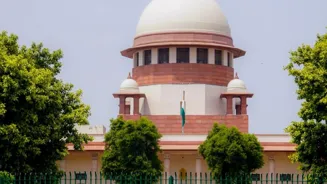The Supreme Court on Monday refused to grant more time for the Special Intensive Revision (SIR) of electoral rolls in Bihar, even as it pointed to a growing trust deficit between the Election Commission
and political parties over the process.
The order came after the Election Commission of India (ECI) submitted that claims and objections can still be filed even after preparation of the electoral roll and until the filing of nominations. A bench led by Justice Surya Kant directed the Bihar Legal Services Authority to deploy volunteers to help voters submit claims and objections.
The court noted the trust deficit between political parties and the ECI, and pulled up parties over the low number of claims and objections filed so far. “Please tell your party to activate itself,” the bench told the RJD, urging political outfits to play a proactive role in the exercise.
The apex court also asked political parties and petitioners to specifically identify individuals whose claims were rejected because of Aadhaar-related issues, instead of relying on the disputed figure of 65 lakh voters.
The Supreme Court was currently hearing a series of petitions challenging the Election Commission of India’s June 24 directive mandating a Special Intensive Revision (SIR) of electoral rolls in Bihar.
Petitioners have argued that the exercise allows for arbitrary deletions without sufficient safeguards, risking the disenfranchisement of lakhs of voters and threatening the principle of free and fair elections.
The Election Commission, however, has defended its decision, maintaining that it has the authority to carry out such revisions and that the process is essential to ensure electoral rolls accurately reflect eligible voters ahead of the Bihar Assembly polls.













